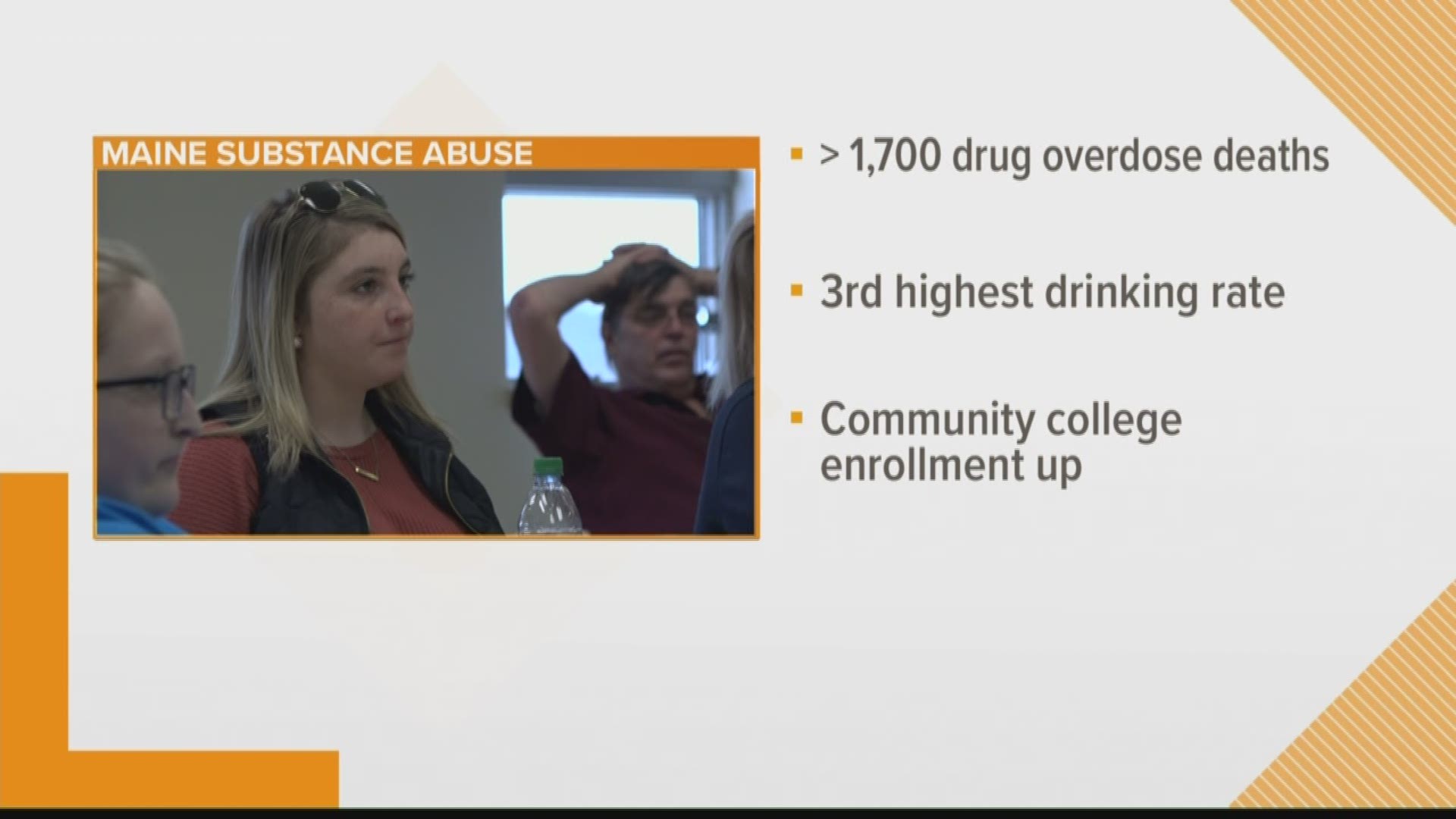BANGOR, Maine — It’s no secret that in Maine, addiction and substance abuse are widely spread epidemics. They affect no specific demographic – and the risk of falling victim can be as simple as taking pain medications prescribed by a doctor, or having a gene prone to the disease.
In our state in the past five years, more than 1,700 people have died from drug overdoses. Just last year, more than 900 babies were born affected by drugs. Regarding alcohol, Maine ranked third highest for the rate of drinkers in the country from 2014 to 2018 – that’s according to a late November 2019 study.
The daunting statistics have led to a push for innovation – and that includes in the school systems.
In the spring 2020 semester, Eastern Maine Community College is kicking off a new certificate program to allow graduates to become certified drug and alcohol counselors.
It’s the first of its kind in the state, and according to a Maine Community College System study, fall enrollment in community colleges increased by more than four percent this year -- so the potential to involve the younger generation in the fight via this school system is decent.
EMCC faculty members told NEWS CENTER Maine that they think data indicates there aren’t enough professionals covering substance abuse and addiction in our state, which is why faculty decided to bring the 30-credit program to campus, following a push from students to have one like it.
Deb McIntyre is a Human Services faculty member at EMMC. She spear-headed the new program and says there are already 10 students and counting enrolled.
“A lot of our students that come here have stories themselves. They might not necessarily have a substance use issue, but they might be affected through family, friends,” McIntyre explained to NEWS CENTER Maine. “They’ve seen it in some realm of their life, as most of us have. I have yet to meet many people who haven’t been afflicted by substance use in some way.”
Substance abuse counselors make a median salary of $45,000. The U.S. Department of Labor indicates that the need for these workers will increase by 22 percent in the next decade.

